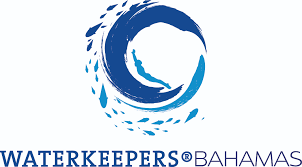Waterkeepers Bahamas: Guarding Against the Oil Industry’s Advances
By: Waterkeeper Alliance

Waterkeepers Bahamas was established in 2014 to ensure the waters of the Bahamas are safe for swimming, fishing and drinking for future generations of Bahamians and residents.
The Bahamas is a nation of islands, with 700 islands and about 2,000 rocks and cays with coral reefs and large areas of seagrass beds, which leaves the country vulnerable to a number of critical threats including overfishing, unregulated development, and pollution. There are few environmental regulations and little enforcement of existing laws in The Bahamas due to the size of the nation and the limited resources of law enforcement.
Therefore, a significant portion of the work undertaken by Waterkeepers Bahamas involves advocating for policy changes to reduce the risk and long-term consequences of oil spill-related environmental disasters. Recovery efforts shifted when nearly 5 million gallons of oil spilled over 21 square miles of land in Grand Bahama in 2019. During the passage of the climate change charged storm, crude oil storage tanks breached, spilling the oil over pine forests, wetlands, and a quarry. Waterkeepers Bahamas continues to press government officials to update the oil spill contingency plan to hold polluters accountable for clean-up and remediation. This plan would also establish appropriate guidelines, ultimately protecting fragile ecosystems and livelihoods.
The fight for a permanent ban on oil drilling in Bahamian waters is part of an ongoing effort to protect against catastrophic spills. Our people are increasingly aware of the risks associated with oil exploration and extraction and the broader effects of climate change. Banning oil drilling once and for all would help the Bahamas become a global leader in the transition away from fossil fuels to a cleaner energy economy, and would signal to any would-be oil prospectors that The Bahamas is not open for this dirty business.
Waterkeepers Bahamas, with the assistance of local environmental groups and concerned citizens, also harvested over 30 thousand mangroves (Red, White and Black Mangroves) as part of a community-based mangrove restoration project. Hurricane Dorian negatively impacted 36% of the mangroves in Grand Bahama and 21% of the mangroves in Abaco. The goal of the mangrove project is to restore nearly 25,000 square meters of mangroves to strengthen resilience in the face of increasingly severe weather systems due to the climate crisis.
All of this crucial work relies on generous support from donors around the world. With increased funding, we could continue to oppose the advances of the fossil fuel industry and protect this beautiful island nation from further corporate contamination.